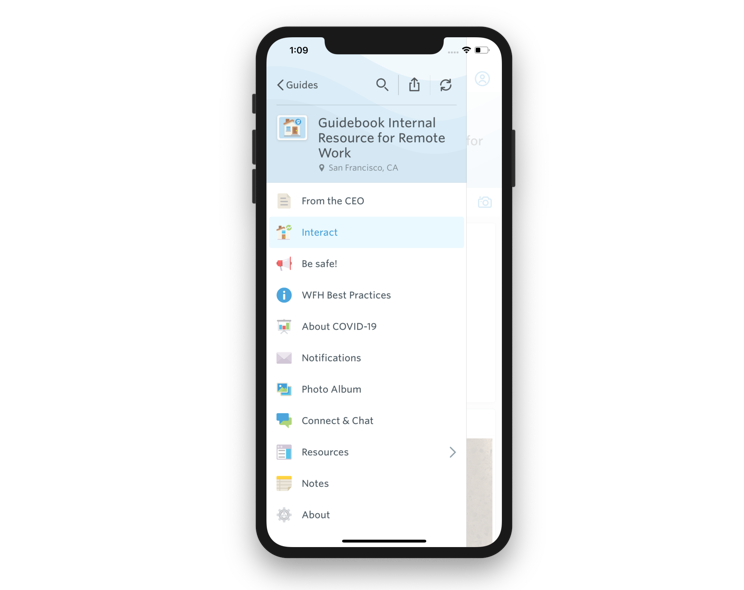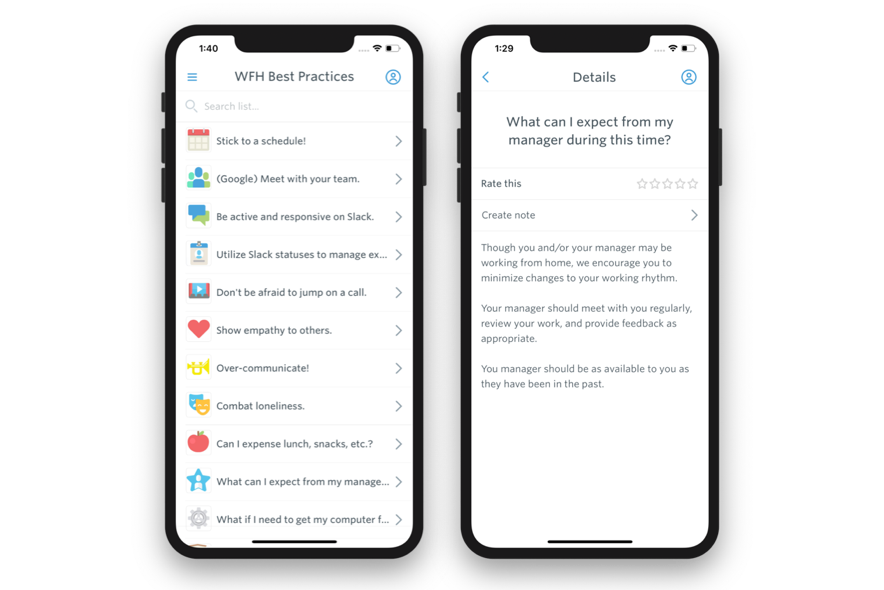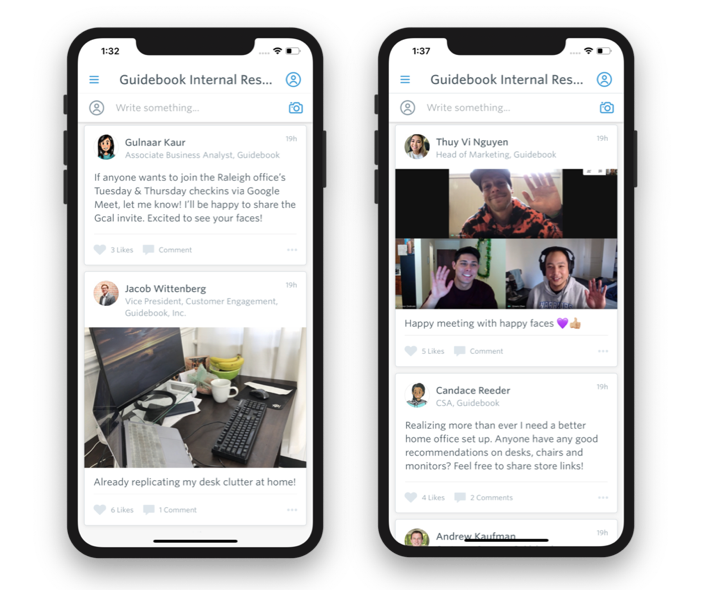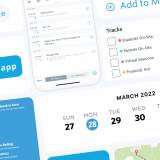How Guidebook Uses Guidebook for Remote Work
In the wake of coronavirus (COVID-19), many companies around the globe have shifted to remote work. Large companies such as Google, Facebook, and Twitter were some of the first to make this switch, with many companies following suit after The Centers for Disease Control (CDC) published a recommendation that businesses should allow their employees to work remotely as much as possible.
But even before the COVID-19 pandemic, Forbes reported that remote work was the “standard operating mode for at least 50% of the U.S. population.” In the last year, remote work quickly became one of the most desirable benefits an employer could offer. The freedom for employees to work in a non-traditional work setting with more flexible hours gave increased motivation for people to seek remote roles, especially employees just joining the workforce. In fact, since 2005, the number of people who work from home has increased by 140% due to advances in technology.
With the rising popularity of a remote work culture, an increasing amount of employers are establishing remote work policies. It’s too soon to tell how long the novel coronavirus outbreak will continue to impact day-to-day operations, but the reality is that remote work is here to stay, which is why it’s critical for businesses to embrace it and create the best and most productive work environment possible. Now, more than ever, it is important to set proper expectations and guidelines for working remotely. Many employees will be working remotely for an extended period for the first time and don’t know what is expected of them, so guidance is key to ensure they are successful. Employers must make it very clear what standards they expect when it comes to how employees should be engaging with each other, in what capacity employees should be available, and in addressing questions employees may ask.
With Guidebook employees located around the globe in North America, South America, Europe, and Asia, communication and access to company information is a vital part of continuity for our business. In order to support remote work, Guidebook uses its own platform to engage with employees, communicate changes in a timely manner, and provide relevant information. A mobile app helps us connect with employees, regardless of whether or not they are working remotely, and provides us with the opportunity to reach employees where they already are — on their phones.

We communicate instant news through push notifications.
Last week, Guidebook’s CEO, Jeff Lewis, sent a push notification to the whole company and announced that effective this week, Guidebook would be implementing a mandatory work-from-home period for employees. And, as more information came in from the county, employees continued to receive notifications regarding important news.
As push notifications for Guidebook’s remote work app are enabled for every employee, this message was received by everyone in the company in real-time… even employees who normally use their email to receive information! The combination of push notifications to email and chat communications increases the likelihood that an employee will receive the information faster. This is the power of mobile — the ability to reach a widespread audience at any time, anywhere.

We set expectations for our employees for what they should expect during this extended remote work period.
Guidebook’s remote work app covers a broad range of topics regarding work-from-home (WFH) best practices, including tips on how to stick to a schedule, over-communicating, being responsive, and how to deal with IT questions.

We encourage engagement and create an environment in which people will not feel isolated.
Similar to social media platforms, Guidebook uses its in-house Interact feature to make sure employees feel connected with each other. From silly stories to recommendation requests to personal photos of desk setups (or pets), Guidebook employees treat this interactive social feed as a place for employees to engage with others.

We keep employees in the loop with general updates.
Decreased amount of face-time in the office means that employees may feel cut off from their peers or information they need in order to do their jobs well. Guidebook not only messages employees about important information (like the push notifications about the work-from-home mandate), but also by sending messages about general information to employees via the messages feature in the app. This ensures that all information that employees need to know about working remotely is found in the app designed for remote work — no need to search through countless emails!

Interested in using mobile to improve your remote work culture? Click the button below to start building your own app!



